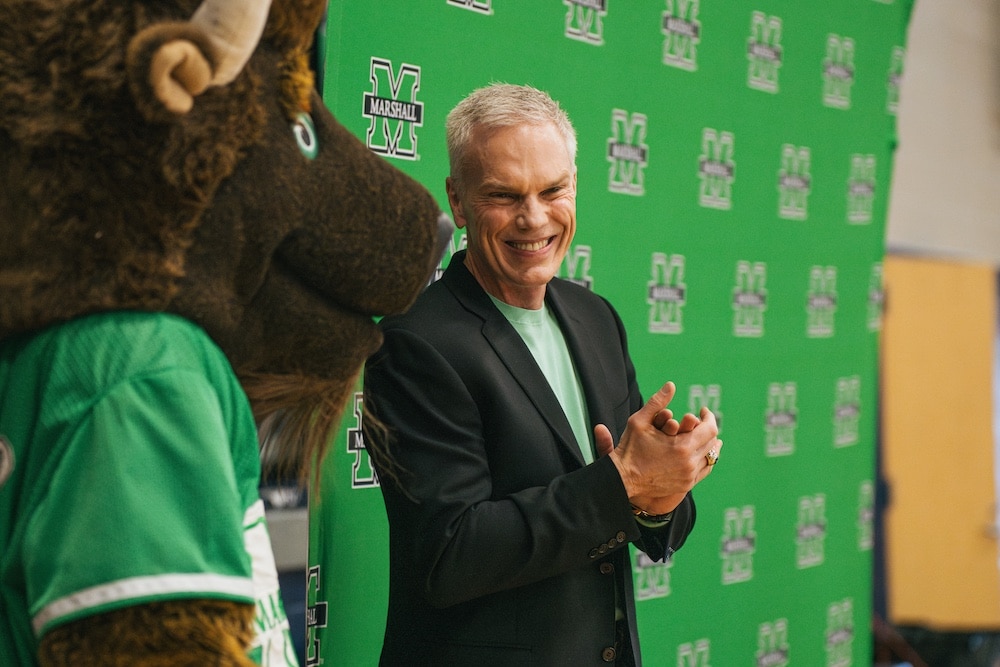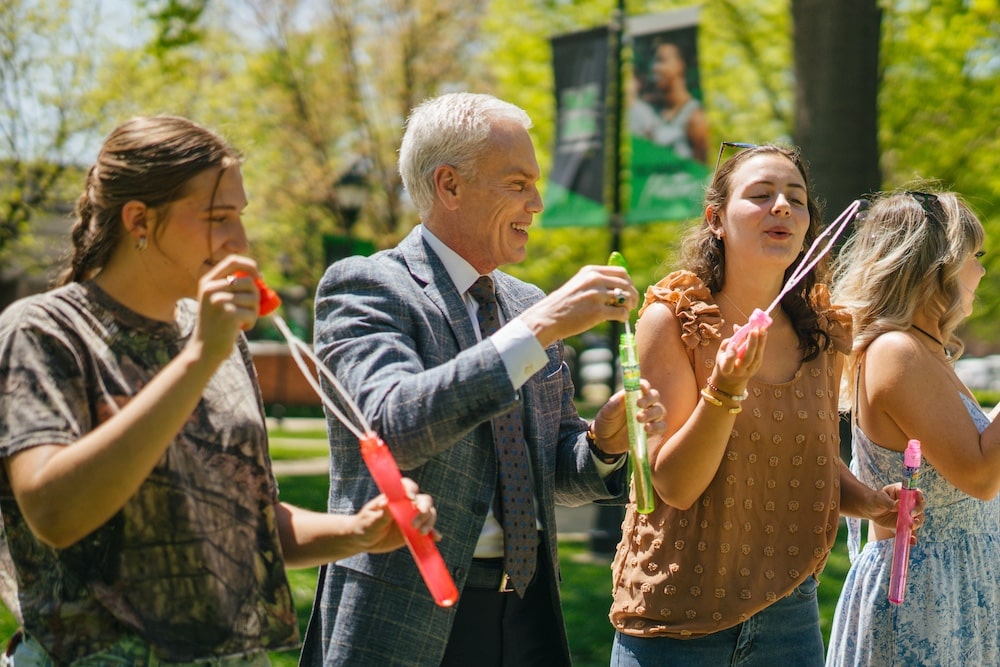On a travel segment of Good Morning America aired on October 22, 2021, Brad D.…
Leadership the West Virginia Way: Resilience, Purpose, and Service

West Virginia has long been defined by its rugged landscapes, deep-rooted communities, and hardworking people. But beyond the coalfields and country roads lies something more enduring: a legacy of leadership shaped by resilience, adaptability, and a powerful sense of purpose.
This spirit is embodied in leaders like Brad D. Smith, who was born and raised in Kenova, a small town near the western border of the state. Brad’s journey from Appalachia to the helm of some of the world’s most influential organizations is more than a personal success story—it’s proof that leadership shaped by purpose and humility can resonate far beyond state lines.
Resilience is Rooted in Appalachia
In West Virginia, resilience isn’t a trend—it’s tradition. For generations, families in the Mountain State have withstood challenges like economic instability, natural disasters, and geographic isolation. Their perseverance forged a culture of grit and grace, where strength doesn’t shout—it shows up, day after day.
In his 2019 op-ed for the Gazette-Mail, West Virginia University President Gordon Gee wrote that most Mountaineers are “down-to-earth, hard-working and resourceful”—a truth exemplified in the Oscar-nominated short film “Heroin(e).” Its subjects—a fire chief, a judge, and a ministry leader—don’t seek credit, but their impact is undeniable.
This same quiet strength runs through Brad’s leadership. His mantra, “Take the jobs no one else wants,” is one he learned from his father, an industrious phone company lineman who taught Brad that real leadership shows up in service, not spotlight. Whether in the boardroom or on campus, Brad’s resilience is evident in the way he embraces challenges with humility and responds to setbacks with renewed resolve.
The Evolution of a Leadership Philosophy

Brad’s definition of leadership has evolved over time. As a child, he was inspired by those who ran toward danger or shouldered responsibility without fanfare. As an executive, he refined his perspective: Leadership is the ability to inspire others to achieve shared objectives.
Every word in that definition matters. It’s not about authority—it’s about service. It’s not about personal glory—it’s about collective progress. And that’s what makes it deeply Appalachian in spirit.
Brad’s “Five Principles of Leadership“—Potential, Purpose, People, Playbook, and Pay-It-Forward—mirror the values he grew up with. These principles aren’t abstract. They are rooted in lived experience, tested in real-world challenges, and passed along through mentorship and action. Each principle reflects a larger truth: that leadership is cultivated, not inherited, and that anyone, from any zip code, can rise to meet the moment.
Adaptive Thinking in a Changing World
West Virginia is no stranger to reinvention. Once defined by its coal economy, the state is now leaning into innovation, sustainability, and entrepreneurship. Initiatives like the ACT Now Coalition are helping transition Appalachian communities toward a more inclusive, clean-energy future, without losing their cultural soul.
Brad’s work at Marshall University reflects this spirit of adaptive leadership. Drawing on lessons from his time in Silicon Valley, he’s implemented design thinking programs that empower students to tackle complex problems with creativity and collaboration. He encourages them to imagine a better version of themselves and their communities while staying rooted in who they are.
As he once told attendees at PACnet ’23, “We have to imagine the version of who we want to be without losing who we are.” In West Virginia, that means embracing progress without abandoning tradition—moving forward while remembering the people and places that shaped you.
Community-Driven Purpose

Perhaps the most powerful throughline in West Virginia leadership is its community-centered ethos. Here, success isn’t measured by titles or accolades—it’s measured by how many people you lift along the way.
Brad calls West Virginia “the house that built me.” That gratitude shows up in everything he does—from his work with the Wing 2 Wing Foundation to his presidency at Marshall. Whether it’s providing scholarships, supporting startups, or mentoring students, Brad leads with one goal: to leave things better than he found them.
This sense of service is not performative. It’s personal. And it’s a defining trait of West Virginia leaders across generations.
Leadership Lessons Beyond State Lines
West Virginia might be a small state, but its lessons are mighty. The leadership forged in its hills and hollers transcends geography. It speaks to a global truth: that the best leaders don’t lead for themselves—they lead for others.
Here’s what the world can learn from the Mountain State:
- Purpose fuels impact. True leaders rally people behind a mission that matters.
- Resilience is a skill. It’s not about being unbreakable—it’s about learning how to bend and bounce back.
- Listening matters. As Brad has often said, “Talk with your teams, not at them.”
- Failure isn’t the end. It’s a necessary step toward a better, wiser version of success.
- Leadership is a journey. One that begins with character and continues with intention.
From rural towns to global boardrooms, West Virginia continues to produce leaders who challenge norms, uplift communities, and navigate change with grit and grace. Brad D. Smith is just one example of what it means to lead from the heart, demonstrating that when you stay rooted in your values, you can carry the lessons from the mountains with you wherever you go.